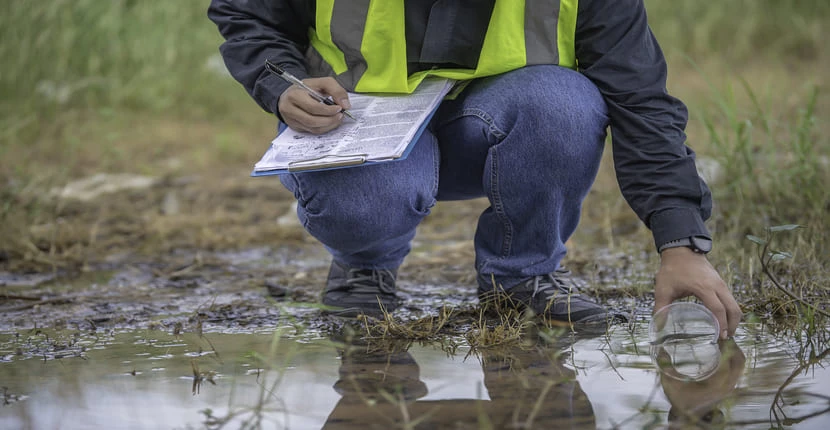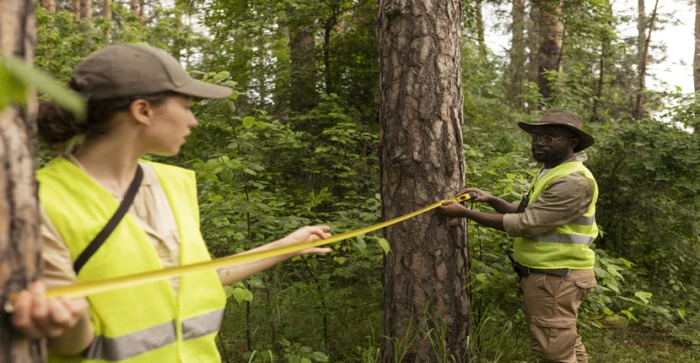
Extended Phase 1 Habitat Survey in Birkenhead
Get a free quote from our experts for an extended phase 1 habitat survey todayAt Invasive Weed, we specialise in extended phase 1 habitat surveys in in Birkenhead to support planning applications, large-scale developments, and conservation projects while ensuring compliance with UK ecological regulations.
This survey goes beyond the basic phase 1 habitat survey in Birkenhead by including checks for protected species, assessments of habitat condition, and the identification of invasive species, providing a more comprehensive ecological picture.
Many local planning authorities require an extended phase 1 habitat survey in Birkenhead as part of environmental impact assessments to ensure that habitats and wildlife are properly considered in development plans.
Our team of licensed ecologists delivers habitat mapping, biodiversity evaluations, and mitigation strategies to help clients meet planning requirements and ecological obligations.
For an extended phase 1 habitat survey in Birkenhead and across the UK, contact us today for a consultation.
What Is The Extended Phase 1 Habitat Survey Process in Birkenhead?
The extended phase 1 habitat survey begins with a desktop study in Birkenhead, where existing ecological records, mapping data, and aerial imagery are reviewed to understand habitat conditions and species presence.
This is followed by an on-site field survey in Birkenhead, where ecologists conduct habitat assessments and species identification to determine ecological constraints and opportunities. The data collection and mapping in Birkenhead phase involves creating detailed habitat maps using geographic information systems (GIS) to visually represent the distribution of ecological features.
Finally, a comprehensive report in Birkenhead is produced, detailing findings, legal implications, and necessary mitigation measures to support planning applications and biodiversity conservation efforts.

What Does An Extended Phase 1 Habitat Survey Include in Birkenhead?
An extended phase 1 habitat survey includes habitat mapping in Birkenhead, biodiversity assessment, protected species screening, invasive species identification, habitat condition evaluation, and ecological recommendations.
These surveys in Birkenhead also include:
Site walkover and habitat mapping in Birkenhead – Identifies and categorises habitat types such as grasslands, woodlands, wetlands, and scrubland.
Flora and fauna assessment in Birkenhead – Records plant and animal species to determine the biodiversity value of the site.
Protected species screening in Birkenhead – Assesses the likelihood of legally protected species such as bats, badgers, great crested newts, dormice, and nesting birds being present.
Invasive species identification in Birkenhead – Detects non-native species like Japanese knotweed and Himalayan balsam, which may have legal and ecological implications.
Habitat condition assessment in Birkenhead – Evaluates the quality and importance of habitats in supporting wildlife and ecosystem function.
Ecological constraints and recommendations in Birkenhead – Advises on potential ecological risks, necessary mitigation strategies, and site management plans to ensure compliance with UK planning regulations.
How Much Does An Extended Phase 1 Habitat Survey Cost in Birkenhead?
Extended phase 1 habitat survey costs range from £800 to £5,000+ in Birkenhead, depending on site size, survey complexity, and additional ecological requirements.
For small residential developments in Birkenhead, costs typically range from £800 to £1,500, while larger commercial and industrial sites in Birkenhead may cost between £2,000 and £5,000, depending on the survey scope and required fieldwork. If protected species surveys in Birkenhead are needed, additional costs may apply, ranging from £800 to £3,500 per species survey.
Additional expenses may include habitat management plans in Birkenhead (£1,500–£6,000), licensing (£200–£500), and biodiversity net gain assessments (£2,000–£6,000). Costs can also increase if further detailed surveys (such as phase 2 habitat surveys) are recommended based on initial findings in Birkenhead.
Contact Invasive Weed in Birkenhead to get customised pricing for an extended phase 1 habitat survey in targeted biodiversity.
Is A Permit Required For An Extended Phase 1 Habitat Survey in Birkenhead?
An extended phase 1 habitat survey ensures that if the survey identifies protected species or designated habitats, a mitigation license in Birkenhead may be required from Natural England or the relevant conservation authority.
It is against the Wildlife and Countryside Act 1981 and the Habitats Regulations 2017 in Birkenhead to destroy or disturb habitats that are home to protected species, to build on a site without doing an ecological assessment in Birkenheadif it has protected wildlife on it, or to build, dig, or clear land without using the right mitigation strategies.
If protected species are confirmed on-site, additional species-specific surveys in Birkenhead may be required, and mitigation licenses must be obtained before development can proceed. Our team assists in obtaining permits in Birkenhead, designing mitigation plans, and ensuring full legal compliance.
How Long Does An Extended Phase 1 Habitat Survey Take in Birkenhead?
An extended phase 1 habitat survey takes between two to six weeks in Birkenhead, but additional species surveys may extend the process by several months.
A basic survey can typically be completed within two to three weeks in Birkenhead, while larger or more complex sites may take four to six weeks. If additional species-specific surveys are needed, they may need to be conducted within specific seasonal windows, which could extend the process by several months in Birkenhead.
What Are The Environmental Considerations In An Extended Phase 1 Habitat Survey in Birkenhead?
The extended phase 1 habitat survey approach includes mitigation strategies in Birkenhead such as habitat enhancement, protected species relocation, and ecological buffer zones to maintain biodiversity and ecological balance.
We also ensure compliance with sustainability goals in Birkenhead and environmental regulations, helping developers minimise ecological impact while achieving project objectives.
Contact Invasive Weed in Birkenhead to get detailed information on the extended phase 1 habitat survey in targeted biodiversity.
We cover Birkenhead (Merseyside)
